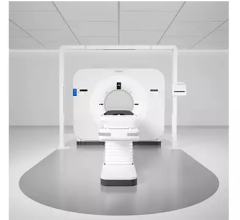September 22, 2008 - Early aggressive treatment with chemotherapy prior to radiotherapy may prolong survival for patients with anaplastic oligodendrogliomas according to new research from the Radiation Therapy Oncology Group (RTOG) presented at ASTRO 2008.
RTOG, an NCI-funded national clinical trials group, is a clinical research component of the American College of Radiology (ACR).
Longer-term results of an RTOG study show that administering chemotherapy prior to radiotherapy increased survival for oligodendroglioma patients. Progression-free survival also improved for those receiving the neoadjuvant chemotherapy, a benefit most evident in those whose tumors have deletions of chromosomes 1p and 19q.
“Our research, while providing some answers for patients with oligodendrogliomas, shows that longer follow-up and genetic profiles will be necessary to provide definitive answers for determining initial treatment strategies,” said Gregory Cairncross, M.D., of the University of Calgary Foothills Medical Centre in Calgary, Canada.
RTOG 9402, a phase III study, enrolled 299 anaplastic oligodendroglioma patients from July 1994 until March 2002 at 104 academic and community facilities in the U.S. and Canada. Patients were randomized to receive either standard radiotherapy alone or four cycles of neoadjuvant chemotherapy using procarbazine, lomustine, and vincristine followed by standard radiotherapy. The unadjusted estimated five-year overall survival rate for all patients entered on the study was slightly better for those who received neoadjuvant chemotherapy (49 vs. 46 percent). The adjusted five-year survival rate is significantly different favoring the experimental arm (hazard ratio = 0.66; 95 percent confidence interval (0.46, 0.95); p value = 0.02). For progression-free survival, the unadjusted estimated five-year rate for all patients entered on the study was significantly better for those who received neoadjuvant chemotherapy (37 vs. 22 percent; p value = 0.003). The adjusted five-year overall progression-free survival was also significantly different favoring the experimental arm (hazard ratio = 0.57; 95 percent confidence interval (0.41, 0.79); p value = 0.02).
Molecular analysis of oligodendrogliomas divides these tumors into two groups – those with deletion of both chromosomes 1p and 19q and those without. RTOG research has shown that patients with the deletions have a better response to treatment and overall survival. RTOG 9402 data reports that patients with the deletion had a median survival of 8.7 years vs. 2.7 years for those without the co-deletion (p
For more information: www.rtog.org, www.acr.org


 December 11, 2025
December 11, 2025 









